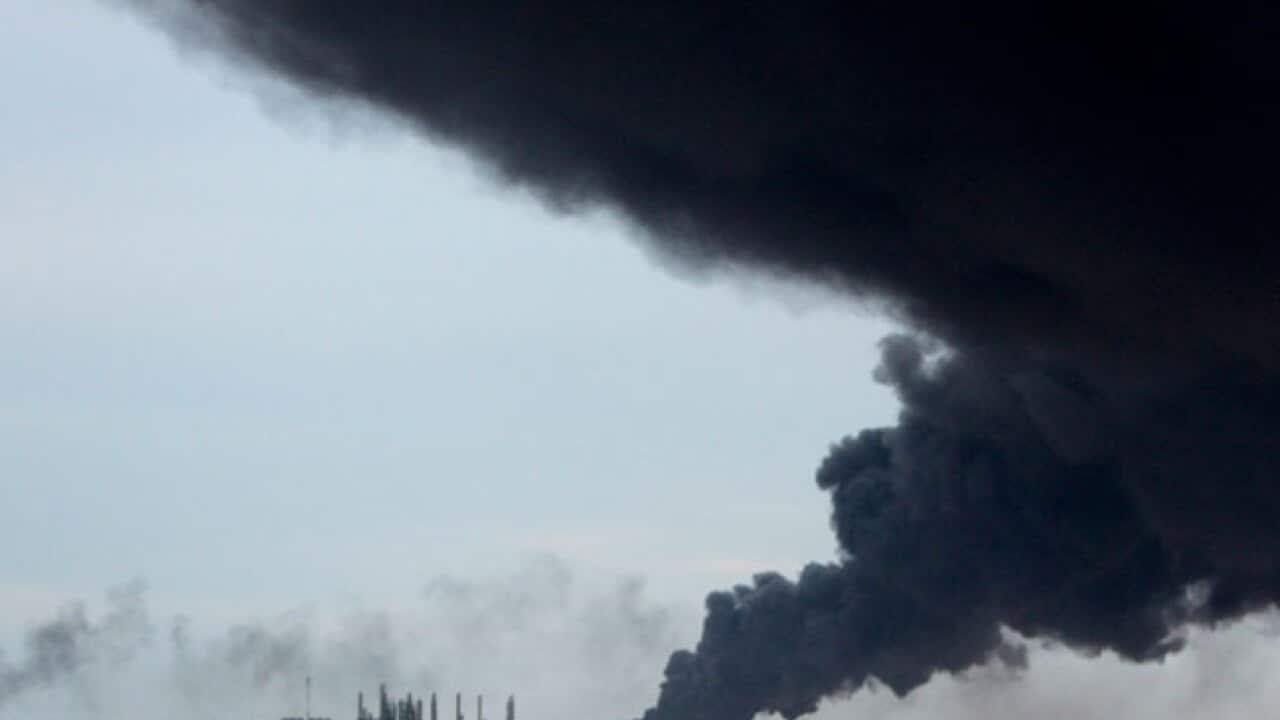Libyan leader Gaddafi's forces are not at breaking point yet a top US military chief warns, saying allied air strikes have wiped out up to 25% of the military.
The US military's top officer, Admiral Mike Mullen, said about up to 25 percent of Gaddafi's military had been knocked out by NATO but "that does not mean he's about to break from a military standpoint."
"The biggest problem the last three or four days has been weather," Mullen told lawmakers, explaining that an inability to identify targets had reduced their effectiveness and allowed regime forces to make gains.
But experts say the opposition lacks anti-tank weapons, radios and other basics, and above all the disjointed, chaotic force needs rudimentary training.
Rebels failed to secure Brega
Libyan rebels have failed to secure control of the oil town of Brega from Muammar Gaddafi's forces, as the West shied away from supplying arms to their outgunned rag-tag army.
US Defense Secretary Robert Gates said the rebels needed training more than guns but suggested other nations do that job, while French counterpart Gerard Longuet said providing weapons was not part of the UN mandate.
Gates said the military mission did not call for deposing Gaddafi and suggested ultimately it would be economic and political pressure and Libya's people -- not coalition air strikes -- that would topple him.
Grilled by US lawmakers, the Pentagon chief described the rebels as a "disparate," improvised force that had a supply of small arms seized at regime depots but sorely lacked military leadership.
"What they really need is training, command and control and some coherent organization," Gates told the House Armed Services Committee.
"The truth is in terms of providing that training, in terms of providing that assistance to them, frankly, there are many countries that can do that. That's not a unique capability of the United States and as far I'm concerned someone else should do that."
Britain in 'confidential discussions' with Gaddafi's inner circle
The day after the regime was rocked by the defection of foreign minister Moussa Koussa, a report said British officials held confidential discussions in London with Mohammed Ismail, a top aide to Gaddafi's son Saif al-Islam.
Citing a British government source, the Guardian newspaper said the meeting, one of a number between the two nations in the last two weeks, is believed to have addressed an exit strategy for Gaddafi and his regime.
Britain's Foreign Office refused to comment on the report other than to say it would not provide a "running commentary" on contact between the two countries.
NATO chief rules out arming the rebels
As the debate raged over whether Western powers should arm the insurgents, NATO chief Anders Fogh Rasmussen ruled out such a move.
"We are there to protect the Libyan people, not to arm people," Rasmussen told reporters.
US, British, French, Canadian, Danish and Belgian jets have attacked Gaddafi's ground forces since March 19 under UN Security Council resolution 1973, which authorized "all necessary measures" to protect civilians.
France, which had previously indicated it was ready to discuss sending arms to the insurgents, on Thursday appeared to rule it out.
"Such assistance is not on the agenda because it is not compatible with resolution 1973," Longuet told reporters.
UN calls for humanitarian assistance to Libyan civilians
On the humanitarian front, UN High Commissioner for Refugees Antonio Guterres said it was "absolutely essential that humanitarian access is given to all those in need of assistance wherever they might be in Libya."
French aid group Action Against Hunger (ACF) said a new wave of refugees fleeing the fighting in Libya was crossing into Tunisia and warned that even more might be on their way.
"A month after the start of the conflict, the number of displaced people fleeing the violence is again on the increase at the border between Libya and Tunisia," ACF said.
"Today 9,000 people are living in the camp at Choucha," compared with hardly 3,000 last week, the organisation said.
Wednesday's defection of Kussa, the most senior figure to jump ship since the uprising against Gaddafi's iron-fisted 41-year rule erupted more than six weeks ago, was widely seen as a sign of a crumbling regime.
British Foreign Secretary William Hague insisted that Kussa, who has been linked to atrocities including the 1988 Lockerbie bombing over Scotland, had not been offered immunity from prosecution.
Scottish prosecutors said they had requested an interview with Kussa over the Lockerbie bombing, while Hague told reporters he was being interviewed "voluntarily" by British officials.
The New York Times, meanwhile, reported that the United States and Britain had inserted covert intelligence agents into Libya to make contact with rebels and to gather data to guide coalition air strikes.
The White House refused to comment on the apparent shadow war and also declined to discuss another report that President Barack Obama had signed a secret order allowing CIA operations in the country.

